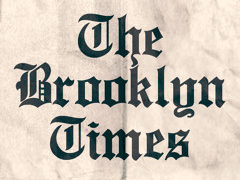|
Michael_Novakhov shared this story . |
A former aide of Russian President Vladimir Putin has accused the U.S. of being behind the arrest of Pavel Durov, the founder and CEO of the Telegram messaging platform.
The 39-year-old billionaire was arrested in France on August 24 as part of an investigation into crimes related to child pornography, drug trafficking, and fraudulent transactions on the platform, the French government said on Monday.
The Russian-born entrepreneur is accused of failing to curb the spread of illegal content on Telegram, which has nearly one billion users worldwide.
Without providing any evidence on the allegations, Vyacheslav Volodin, the chairman of Russia’s State Duma (a role akin to that of Speaker in the U.S. House of Representatives), has claimed that the U.S., through France, attempted to take control of Telegram.
“Telegram is one of the few and, at the same time, the largest Internet platforms over which the United States has no influence,” Volodin said in a post.
“On the eve of the U.S. presidential election, it is important for President Joe Biden to take Telegram under control.”
The arrest comes after French President Emmanuel Macron denied any involvement and said on Monday that the French government was not involved in the arrest of the Telegram founder.
“The arrest of Telegram’s president on French territory took place as part of an ongoing judicial investigation. This is in no way a political decision. It is up to the judges to decide,” Macron said.
The Kremlin claimed on Monday that it had yet to see any official French accusations against Durov.
According to French media, Durov was arrested upon arrival in his private jet at Le Bourget Airport outside Paris. The tech tycoon was allegedly targeted by an arrest warrant as part of a preliminary investigation by authorities.
Durov left Russia in 2014 after losing control of his previous company due to his refusal to provide security agencies with the data of Ukrainian protesters.
Durov is a resident of Dubai and holds dual citizenship in the United Arab Emirates and France.
Newsweek has contacted the Russian foreign ministry, Telegram, the White House, and the French president’s office for comment.
Telegram is a cloud-based messaging app that allows users to send text messages, voice messages, multimedia files, and make voice and video calls. It was launched in 2013 by Russian brothers Pavel and Nikolai Durov.
After Russia invaded Ukraine in 2022, Telegram became the main source of information and content from from combat zones and the front lines on both sides of the war.
The encrypted social media app is frequently used by Ukrainian President Volodymyr Zelensky and Russian officials to post updates on the ongoing conflict.
Telegram is one of the most important communication tools in the Russia-Ukraine war, and users will be watching closely how Durov’s detention unfolds as the future of the app remains uncertain.
Samuel Greene, Professor of Russian Politics at King’s College London, told Newsweek that Western governments “have concerns about public safety and public health” on the app.
Greene argues the case will “set a precedent” for dealing with public safety concerns on social media platforms.
Greene said that authoritarian regimes like Russia want to see Telegram “cease to exist” because they want to “control” information.
“Western governments are interested in supporting democracy and anti-authoritarian resistance movements around the world. There is a very real interest in making sure that Telegram continues to be a resource for movements that fear prosecution and that need safe spaces to communicate.”
An European Union Commission spokesperson told Newsweek, “We are closely monitoring the developments related to Telegram and stand ready to cooperate with the French authorities should it be relevant.”
“Telegram, like all online platforms operating in the EU, has to comply with the general provisions of the Digital Services Act (DSA) since 17 February 2024.
“The DSA sets out due diligence obligations for all online platforms to ensure everyone in the EU can trust their services. The DSA requires platforms to provide users with means to flag illegal content as well as to cooperate with national authorities, including when they acquire knowledge of serious crimes or when they receive orders to provide information on accounts suspected of criminal activity.”
“Telegram abides by EU laws, including the Digital Services Act – its moderation is within industry standards and constantly improving,” Telegram said in a statement on Sunday evening.
Do you have a story Newsweek should be covering? Do you have any questions about this story? Contact <a href=”mailto:LiveNews@newsweek.com”>LiveNews@newsweek.com</a>


